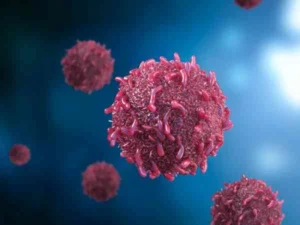When we are talking about maintaining a healthy diet, then the first thing is to understand the impact of purine-rich foods is important. Purines are compounds that form naturally are found in various food items and are essential to our diet. Too much consumption of purine-rich foods may cause several problems for individuals with medical conditions such as gout or high uric acid levels.
Therefore, it is advised to have purine-rich foods but in a limited amount. In this blog, we will deep dive into the world of purine-rich foods, low-purine alternatives, their effects on health, and tricks and strategies to manage their consumption. If you are looking to seek knowledge and information about purines then this blog is just for you.
What is Purine Rich Foods

Purines are organic compounds that are present in the cells of both plants and animals. It also plays a crucial part in increasing the body’s metabolism, which includes the formation of DNA and RNA, energy transfer, and signaling processes. The consumption of Purines is essential to maintaining a healthy balanced diet. However excessive consumption of purine-rich food can cause severe health issues as well. In order to incorporate a high-purine diet, include the items mentioned below in your meal plan. Some common purine-rich foods list are mentioned in the following below:
- Organ Meats: Liver, kidney, and other organ meats are exceptionally high in purines.
- Seafood: Mackerel, herring, sardines, and anchovies are some varieties of fish that are known for their elevated purine content. However, These should be limited in the diet of individuals who are suffering from uric acid-related health problems.
- Game Meats: Venison and game birds like grouse and pheasant are high in purines.
- Legumes: Beans, lentils, chickpeas, and peas are plant-based sources of purines, However, their levels are generally lower than in animal products.
- Vegetables: Some vegetables, like spinach, cauliflower, and mushrooms, contain moderate purine levels.
What Are Low Purine Foods?

Low-purine-rich food items contain a minimum level of purines, which ultimately makes them a safer choice for people who need to manage their purine intake. Adding low-purine foods into your diet can help you reduce the risk of gout attacks and kidney stone formation. Some common low-purine foods list are mentioned in the following below:
- Fruits: Most of the fruits are naturally low in purines.
- Vegetables: Many vegetables are low in purines as well.
- Grains: Whole grains like rice, oats, and whole wheat are low in purines and provide essential nutrients and fiber.
- Dairy Products: A lot of dairy products have low purines for example milk, yogurt, and cheese.
- Eggs: Eggs are a low-purine source of protein and provide essential amino acids.
Health Implications of Purines

The excessive consumption of purine-rich foods can have health implications, particularly for individuals who are suffering from health problems like gout or high uric acid levels. Gout is a painful phase of arthritis caused by the deposition of urate crystals in the joints, causing pain and inflammation. Metabolic syndrome is a syndrome which gets developed by the excessive consumption of purines. There are a lot of problems that can occur due to the excessive intake of purines.
Conclusion
To summarize, knowing the significance and advantages of purine-rich foods in our diet is critical for leading a balanced and healthy lifestyle. Purines are organic compounds. They are available in both plants as well as animals. It also plays a crucial role in the body’s metabolism, including the formation of DNA and RNA, energy transfer, and signaling processes.
Balance your diet with a range of foods, particularly those low in purines, to help lessen the dangers associated with excessive purine consumption. Include lots of fruits and vegetables, healthy grains, and lean meats in your regular meals.
Individuals with no special medical concerns about purines can have purine-rich foods in their diet in moderation. For every human being it is essential to remain healthy which is possible by maintaining a healthy lifestyle.
Whereas a healthy lifestyle includes being hydrated, obtaining regular exercise, and exercising portion management. Every individual is different from one another likewise the way their body will respond to purine-rich foods can also differ.
Therefore, paying attention to how your body reacts to the consumption of purine-rich foods can help you make informed dietary choices. Consulting with a registered dietitian can provide personalized guidance on managing your purine intake if you have specific health concerns.







